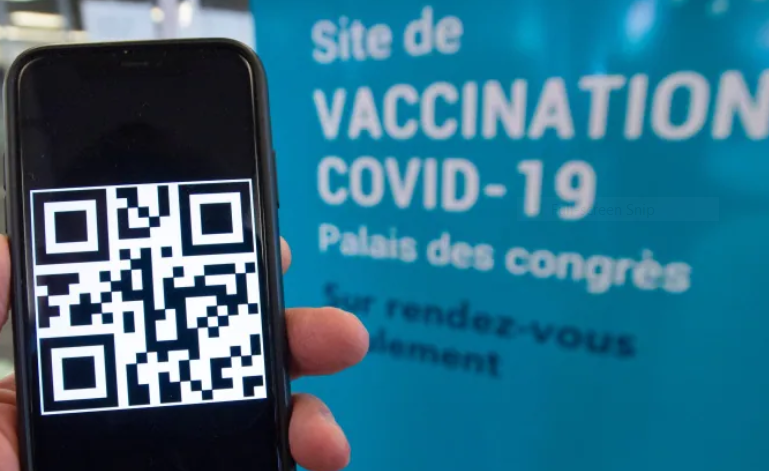Published: May 19, 2021
-CBC
Canada’s privacy commissioners are issuing a warning about vaccine passports, saying measures must be taken to ensure Canadians’ personal information is protected.
“While this may offer substantial public benefit, it is an encroachment on civil liberties that should be taken only after careful consideration,” federal, provincial and territorial privacy commissioners and the ombudsperson’s offices in Manitoba and New Brunswick said in a media statement today.
Health Minister Patty Hajdu told CBC News last week that her government is talking with G7 allies about implementing a vaccine passport that would allow Canadians to travel internationally again.
On May 13, Quebec started issuing downloadable QR codes that people can keep on their phones to prove they’ve been vaccinated, but it remains unclear how that digital proof of vaccination will be used.
Quebec Health Minister Christian Dubé said the QR code, which supplements paper vaccination documents already being distributed, is not itself a vaccine passport but is a necessary first step toward implementing such a system.
Quebec is following the example of countries such as Israel and Denmark which have issued digital proof-of-vaccination certificates that people can use to access events and businesses.
The EU is developing its own vaccine passport — the Digital Green Certificate — which will allow citizens of EU member states to prove they have been vaccinated.
The United Kingdom says that it is working on a plan to adapt its National Health Service phone app — which is used to access medical records, book appointments and order prescriptions — to serve as a digital vaccination and testing verification tool.
Concerns over privacy, security
The privacy commissioners say that if vaccination passports are issued in Canada, steps must be taken to ensure the highest level of privacy protection is maintained so that personal health information is not disclosed.
“Vaccine passports must be developed and implemented in compliance with applicable privacy laws,” the statement said.
The privacy commissioners say governments must ensure there is a legal basis to require proof of vaccination. Canadians travelling internationally, for example, may need to carry proof because destination countries require it.
Businesses and governments that plan to require proof of vaccination, the commissioners said, will need to lay the groundwork for that requirement by introducing new laws or amending existing ones.
The commissioners also said that governments should prove that vaccine passports are necessary, either for travel or to access businesses and services.
“So far we have not been presented with evidence of vaccine effectiveness to prevent transmission, although members of the scientific community have indicated that this may be forthcoming,” the statement said.
Vaccine passports, the commissioners said, should contain only the information required to prove vaccination and not additional health information that could be compromised. They said that once the pandemic has been declared over, or proof of vaccination proves to no longer be necessary, the passports should be destroyed.
The commissioners also want independent oversight of any vaccine passport program and for Canadians to be told how their information is used and stored.




